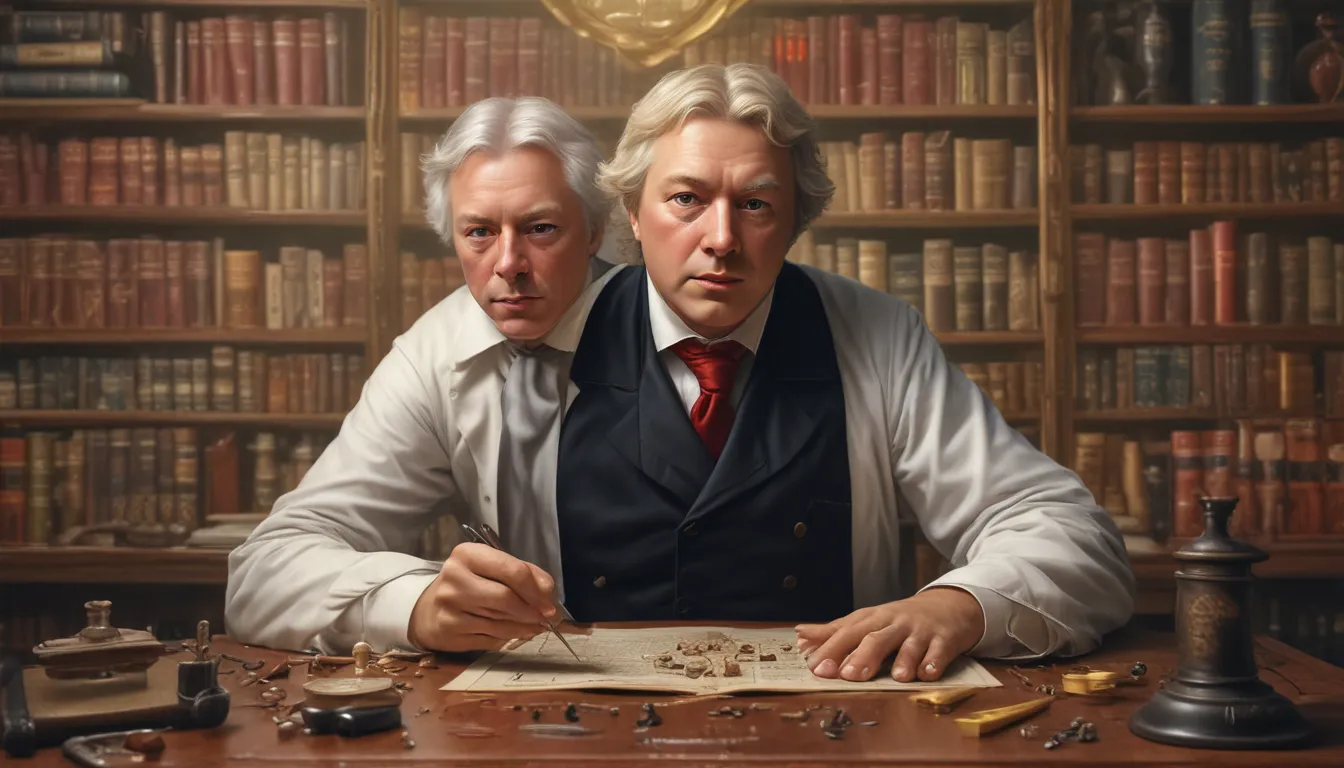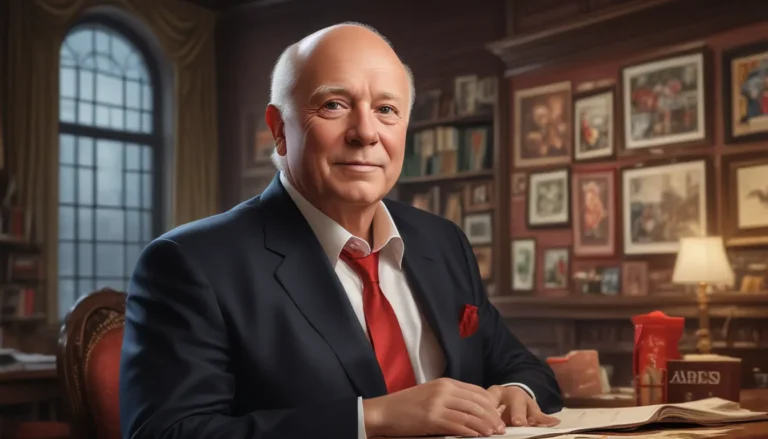The images in our articles may not match the content exactly. They are used to grab your attention, not to show the exact details in the text. The images complement the text but do not replace it.
Have you ever heard of Dr. Edward Jenner, the “Father of Immunology”? If not, you’re in for a treat. Join us as we uncover 12 extraordinary facts about this remarkable figure who revolutionized the field of medicine with his pioneering work in developing the smallpox vaccine. From his childhood fascination with nature to his groundbreaking experiments with cowpox, Dr. Edward Jenner’s journey is nothing short of extraordinary. So, buckle up and get ready to explore the remarkable life and unparalleled contributions of this influential figure in medical history.
Dr. Edward Jenner: The Father of Vaccination
Dr. Edward Jenner is widely acclaimed as the father of vaccination, thanks to his groundbreaking work that revolutionized the field of medicine and saved countless lives. But there’s more to this remarkable man than meets the eye. Let’s delve into the fascinating world of Dr. Edward Jenner and uncover some lesser-known facts about his extraordinary life.
A Childhood Fascination with Nature
From a young age, Jenner displayed a keen interest in the natural world, captivated by the wonders of nature and enthusiastic about studying plants and animals. This early passion for scientific exploration would eventually lead him down the path of medical discovery, shaping his future as one of the most influential figures in medical history.
The Smallpox Connection
The devastating impact of smallpox during the 18th century prompted Jenner to focus his efforts on finding a solution. Inspired by the observation that milkmaids who had contracted cowpox seemed to be immune to smallpox, Jenner embarked on a journey that would change the course of medical history forever.
The First Successful Vaccination
In 1796, Jenner conducted a groundbreaking experiment on a young boy named James Phipps. By inoculating Phipps with material taken from a cowpox blister and then exposing him to smallpox, Jenner proved the effectiveness of his vaccination. This milestone event marked the beginning of a new era in medicine, paving the way for the eradication of smallpox and the development of vaccines for other diseases.
The Term “Vaccination”
Jenner’s pioneering work gave rise to the term “vaccination,” derived from the Latin word “vacca,” meaning cow. This term, synonymous with the prevention of diseases through immunization, continues to hold relevance in today’s world of modern medicine.
Global Recognition and Legacy of Vaccination
Jenner’s discovery quickly gained global recognition, with his vaccination method being widely adopted and playing a pivotal role in the eradication of smallpox. His groundbreaking approach laid the foundation for the development of vaccines for numerous other diseases, saving millions of lives worldwide and leaving an indelible mark on the field of medicine.
The Royal Pioneering Support and Continued Research
Dr. Edward Jenner’s work received recognition from the highest echelons of society, with King George IV granting him an annual stipend in 1806 in acknowledgment of his groundbreaking contributions to medicine. Throughout his career, Jenner continued to research and innovate in the field of medicine, making significant advancements in the understanding of diseases such as typhus and cholera, further solidifying his legacy as one of the most influential figures in medical history.
Honored by the Scientific Community and Literary Talent
Jenner’s contributions to science and medicine were widely acknowledged during his lifetime, with his election as a Fellow of the Royal Society in 1788 and receipt of numerous accolades for his groundbreaking discoveries. In addition to his scientific pursuits, Jenner was also a talented writer, authoring several publications that documented his experiments and findings on vaccination.
An Enduring Legacy and Conclusion
The impact of Dr. Edward Jenner’s work continues to resonate in the field of medicine and public health, with his pioneering efforts in vaccination contributing to the prevention of countless diseases and the improvement of global well-being. From his groundbreaking vaccination against smallpox to his ongoing contributions to medicine, Jenner’s legacy inspires generations of scientists and physicians to strive for excellence and innovation in the pursuit of a healthier future for all.
FAQs
Q: Who was Dr. Edward Jenner?
A: Dr. Edward Jenner was an English physician and scientist known for pioneering the development of the smallpox vaccine.
Q: What is Dr. Jenner’s most significant contribution?
A: Dr. Jenner’s most significant contribution was the development of the smallpox vaccine, which laid the foundation for the eradication of the disease.
Q: How did Dr. Jenner come up with the idea for the smallpox vaccine?
A: Dr. Jenner observed that milkmaids exposed to cowpox were immune to smallpox, leading him to hypothesize that cowpox exposure could protect against the disease.
Q: When was the smallpox vaccine first administered?
A: The first successful administration of the smallpox vaccine took place on May 14, 1796, when Dr. Jenner inoculated James Phipps with material from a cowpox sore.
Q: How effective is the smallpox vaccine?
A: The smallpox vaccine has proven to be highly effective, leading to the global eradication of the disease in 1980.
Q: Did Dr. Jenner develop other vaccines?
A: While Dr. Jenner’s major contribution was the smallpox vaccine, he also made strides in developing vaccines for diseases like typhoid and cholera.
In a world where scientific breakthroughs shape our future, Dr. Edward Jenner’s legacy stands as a testament to the power of innovation and dedication in transforming healthcare. His pioneering work continues to inspire new generations of medical professionals as they strive to push boundaries, unravel mysteries, and work towards a healthier future for all. Join us in celebrating the extraordinary achievements of this visionary physician and scientist, whose contributions have left an indelible mark on the world of medicine.






